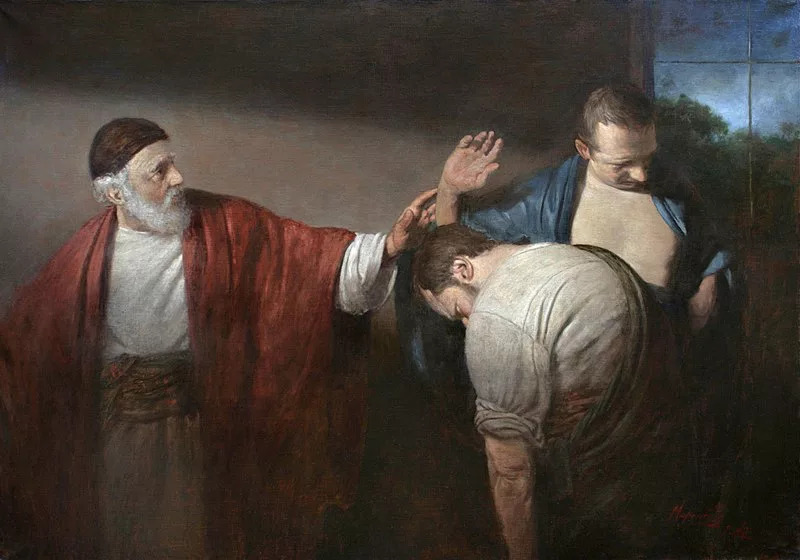Jijo Kandamkulathy, CMF
Claretian Publications, Macau
26TH SUNDAY IN ORDINARY TIME – YEAR A
Mt 21:28-32
The parable of today’s Gospel depicts three characters: a father and two sons. At the invitation of his father to work in the vineyard, one right away said, “No,” and later repented and went to the field. The other one zealously and readily answered, “Yes, sir,” but then did not go. Their responses remind us of another saying of Jesus, “Not everyone who says to me, Lord, Lord, will enter into the kingdom of heaven, but the one who does the will of my heavenly Father” (Mt 7:21).
In the first case, the allusion to the hated Gentiles, who are now elevated to the status of children, is explicit. They have not given any formal adherence to the will of the Lord, but they entered first in the kingdom of God.
Now, the father approaches the other son, who evidently represents the Israelites whom Moses had already called “unfaithful children” (Dt 32:5-20). Not all the Israelites, of course, but those who in words had committed themselves to the covenant and then had reduced them to external rites, worthless ceremonies, convinced that they were right with the Lord because they offered sacrifices and burnt offerings, and prayers. This, at the time of Jesus, was the religion practiced by the priests of the temple and the notables of the people.
This finding may lead to the dangerous illusion that these two children are historical characters and have nothing to do with us. Christians would be the “third son,” the one who says yes and does the will of the Father. But let’s ask ourselves what impact have our formulas, our statements, our formal stand, our rituals in everyday life (“Go to work today in the vineyard!”)? Do they put an end to hatred, wars, and abuses? While continuing to profess ourselves as Christians, do we not easily resign ourselves to a life of compromise?
The third child exists, but we are not that child. Only “the Son of God, Jesus Christ,” Paul writes, was not a “yes” and a “no,” but with him it was simply “yes.” “In him all the promises of God have come to be a yes” (2 Cor 1:19). He is the one who always said, “Yes, Father, this was your gracious will” (Mt 11:26).
The conclusion of the parable is that, “The tax collectors and the prostitutes are ahead of you in the kingdom of God.” “The publicans and the harlots” who know they are far from God do not delude themselves into believing that they have done His will. They are conscious of having said no; they do not try to fool themselves by fulfilling the precepts they themselves invented. They do not soothe their conscience with practices that have nothing in common with the true religion. Their awareness of being poor, weak, sinners in need of help, predisposes them to be first in receiving God’s gift.
Indebted to Fr. Fernando Armellini SCJ


 Follow
Follow


